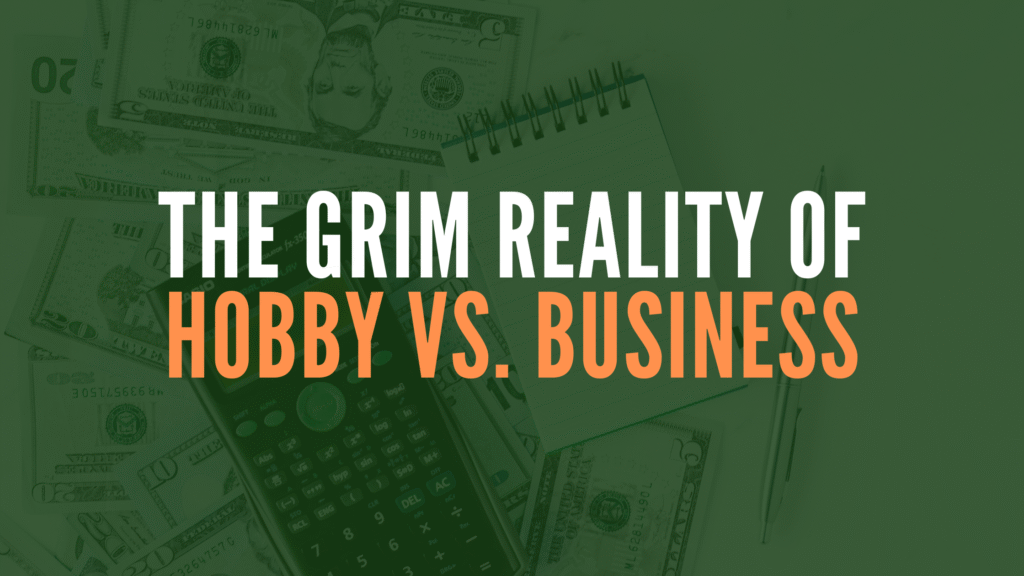The tax law has long been harsh on hobbies, but recent tax reforms have made things even worse. If you’re running a hobby or an activity that could be classified as a hobby by the IRS, you might want to take a hard look at your situation. The consequences could be much more painful than you think.
Hobbies vs. Businesses: What’s the Difference?
Under both old and new tax laws, your activity falls into one of two categories: business (for profit) or hobby (not for profit). Unfortunately, the hobby classification brings about significant tax challenges, especially under the recent tax reform.
Here’s how it plays out:
- Hobby Income: Any income from your hobby is still taxable. The IRS doesn’t have an exclusion for hobby income, meaning you’ll be required to pay tax on any money you earn from your hobby.
- Deductions for Hobbies: The real sting comes when it comes to deductions. Hobby losses can no longer offset hobby income. Under the new rules, if your activity is classified as a hobby, you cannot deduct any expenses related to it. This means that if you’re losing money on your hobby, you’ll be left with no relief at all—your losses will not help lower your taxable income.
For many people, this new rule feels like a gut punch. Hobbyists, including direct sellers (think Amway, Mary Kay, Herbalife), are particularly affected. According to a Tax Notes article, there are 15.2 million direct sellers who could find themselves trapped in the hobby category under the new law.
The Struggle for Direct Sellers and Others in Hobby Loss Situations
If you’re a direct seller, you may have thought of your activity as a small business. You may sell products or services for profit, but if the IRS deems your operation a “hobby,” the tax consequences could be significant.
Similarly, many individuals who have hobbies related to their profession (like doctors or lawyers who own racehorses or run small ranches) could also feel cheated. Under the new rules, these individuals can no longer deduct expenses related to their hobbies, making the whole situation much more difficult from a financial perspective.
The Key to Avoiding Hobby Tax Traps: Establish Your Activity as a Business
The way out of this tricky tax situation is simple in theory: Establish your hobby as a business. The IRS has clear guidelines for what qualifies as a business, and it can make a huge difference when it comes to your taxes.
If you can prove that your activity is intended for profit and that you are running it with the intention of making money, you may be able to treat your activity as a business rather than a hobby.
- Business Income: Like any business, your income will still be taxable. However, you can also deduct business expenses which is a huge advantage.
- Business Deductions: As a business, you may deduct expenses like supplies, business travel, advertising, and more. These deductions can help offset your taxable income, potentially lowering your overall tax bill.
But here’s the thing: simply calling your activity a business doesn’t guarantee the IRS will agree. They’ll look at factors like the time and effort you put into your activity, whether you have a clear profit motive, and if your activity is structured in a way that shows you’re working toward profitability.
If you’re currently treating your hobby as a business (or vice versa), it’s time to take a closer look at your tax situation. Whether you’re a direct seller, an enthusiast, or someone who just wants to make their hobby more tax-efficient, it’s important to make sure you’re following the right rules.
The best way to navigate this is to work with a tax professional who can help you establish your hobby as a business or guide you on how to make the right tax decisions.

